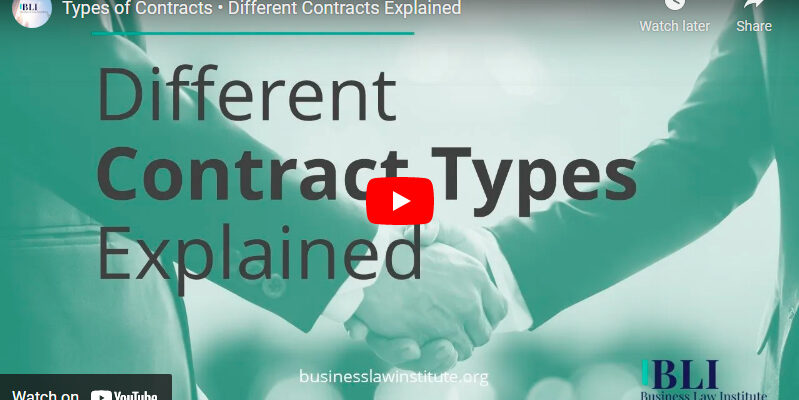A Business Owner’s Guide to Creating and Negotiating Client Contracts
In the business world, contracts serve as an important document clarifying project expectations, payment terms, and conflict resolution. If you’re a business owner looking for the best methods to follow regarding contracts, this article by Project Victories has got you covered.
The Importance of Contracts
Entering into a contract is more than just a best practice, it is a crucial step towards safeguarding the health and success of your business.
- Contracts Provide Proof of Information: Verbally agreeing to terms is always a risky endeavor as there is no way to keep track of what has been discussed. A written contract serves as a binding document that can be referred to at all times and ensures things are in order.
- Contracts Prevent Misunderstandings: A well-written contract will provide concise information relating to the project and financial expectations. This reduces the risk of misunderstandings which can lead to unwanted delays.
- Contracts Offer Protection: A contract is a legal document that can be used in court to receive compensation for violations or damages caused by clients.
- Contracts Always Stay on Record: Once signed, contracts become an important business document for the present and the future. Past contracts that provided good returns for the company can be used to shape newer ones.
Contract Creation Tips
When it comes to dealing with a new client, it’s best to take the lead in creating the contract. While some tweaks will be made during negotiations, you can be sure that all information you deem relevant is included in the contract. Here are some key aspects the contract must specify:
- Correct Names of Parties: Naming mistakes are more common than you think and can have future consequences. Use the legally registered name of both parties in all instances in the contract.
- Payment Obligations: This section should include information regarding the pay rate, payment dates, mode of payment, and all other relevant details. Additionally, on each payment date, create an invoice to be shared with the client. This is a good solution for an invoice maker because it provides various templates to choose from depending on the type of project.
- Contract Termination Clause(s): As stated by Contractbook, a termination clause includes reasons for which either party can terminate the contract without legal or financial repercussions. This can include low quality of work, multiple missed deadlines, providing false information, fraud, etc.
Creating a business contract singlehandedly can be challenging, but this process can be made much easier by using contract management software such as Symfact, ContractWorks, and Agiloft. In addition to providing numerous templates to choose from, these tools can be used to share contracts with clients, make necessary edits and encrypt documents once they are signed. Similar to contracts, ensure that the names of both parties are mentioned correctly on the invoice, along with your logo and official business address.
Good Negotiation Tactics
Contract negotiation is the crucial final step before both parties sign the document and it becomes legally binding. So, clearly, it’s worth taking some time to prepare, both logistically and mentally. To ensure that the negotiation proceeding goes as planned, follow these steps:
- Come Fully Prepared: During negotiations, there is a high likelihood that the topic of finances will be brought up. Hence, in the weeks leading up to the negotiation ensure your finances stay organized with accounting software. Strong finances will provide you with some much-needed leverage in the discussions.
- Prioritize Topics: Before the meeting, thoroughly review the contract and highlight key points that you want to be addressed. Take the lead in discussions and discuss these points at the start.
- Ask Questions: As reported by TMSA, whether it be ad hoc questions or major topics such as payment timelines, don’t refrain from asking any questions that come to mind. Before signing the contract, you need to have complete clarity regarding the project and expectations.
When it comes to managing contracts, never let a client rush you in the process. Always take the time to thoroughly review the document, ensure that the necessary changes are made and only when both parties are satisfied should the final step of signing the contract be taken.
Project Victories is a blog for anyone wanting to learn more about business or how to make their business successful. If you have any questions, let us know!
Your path to business success.

